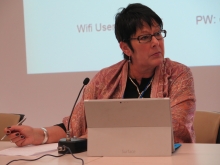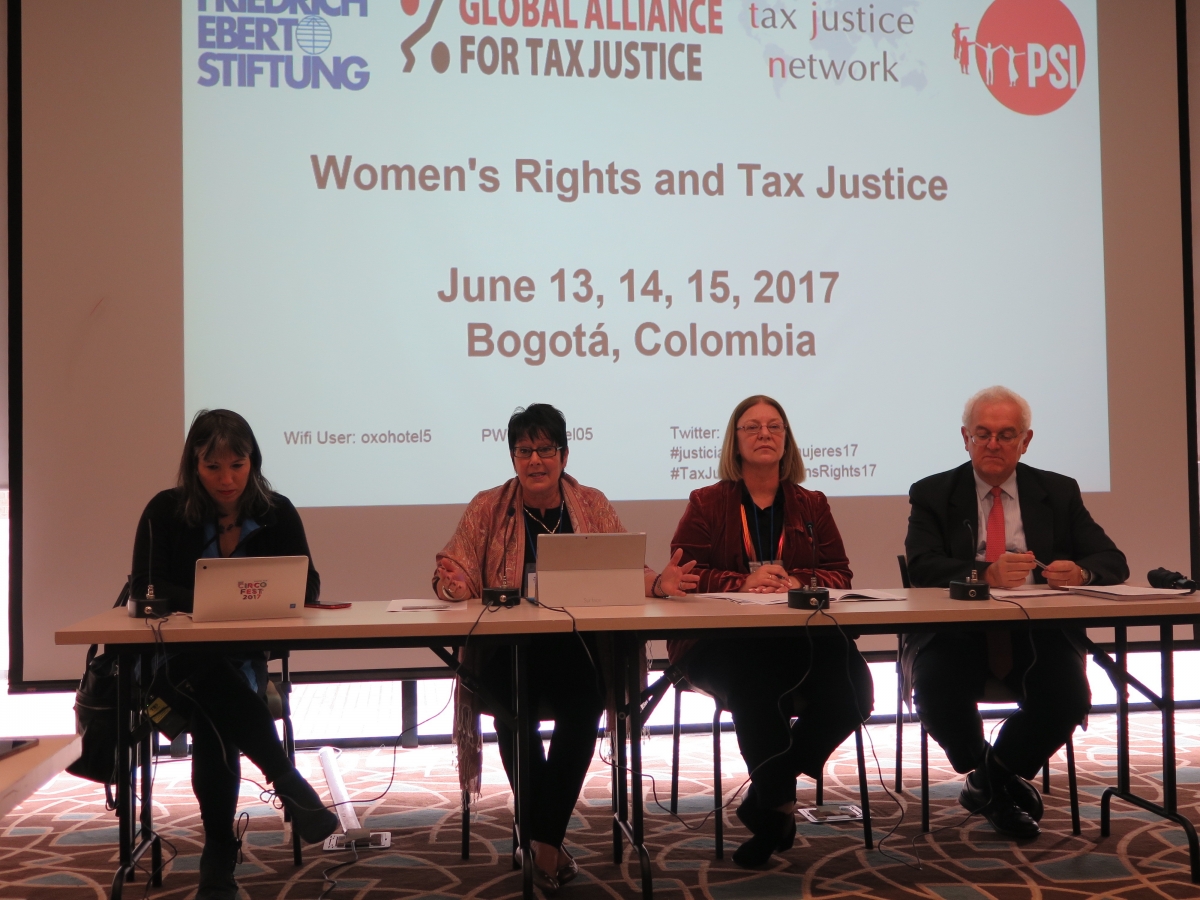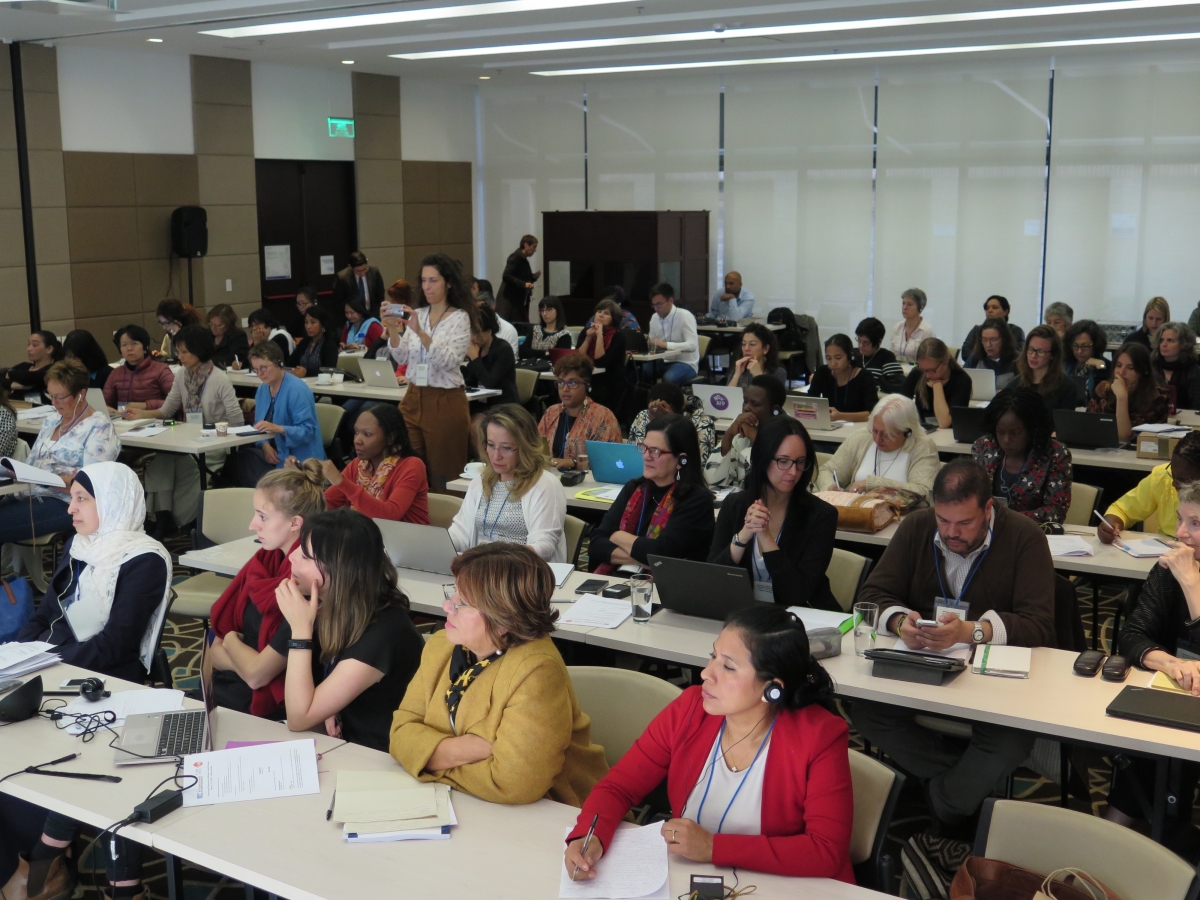PSI at the Women's Rights and Tax Justice Convening in Bogota

The Women's Rights and Tax Justice Convening kicks off on 13 June in Bogotá, Colombia with a conversation between Rosa Pavanelli, PSI General Secretary, Jose Antonio Ocampo, member of ICRICT and Chairman of the Board of Banco del República (Central Bank of Colombia) and Maria Nieves Rico, Director of Gender Affairs from the Economic Commission for Latin America and the Caribbean (CEPAL).
In her opening speech (see Rosa's full speech) at the Tax Justice and Women's Rights Global Convening, Rosa Pavanelli explains the importance to work together to strengthen both the gender justice movement and the tax justice movement:
“What is important to understand is that both the tax and gender movements […] have at the heart of their project an attack on those people who have power and a shift of that power. On the one hand a redistribution of power to women to ensure we have better control of our lives and on the other hand a redistribution of wealth away from the elites to working people.”

She states that:
“Economic power translates into political power. And the gendered system of taxes that is part of the global economic architecture channels great wealth to those who defend the current system. This system creates enormous inequality that effects both workers and women. Both are told this is the way of the world and it can be no other way.”
Pavanelli then adds:
“And all of this is a reminder that we face concerted opposition. And that we should not underestimate the forces we are up against.”

Jose Antonio Ocampo points out that the current tax system is obsolete and abusive practices prevail.
“The system encourages tax evasion and those that benefit from it the most are multinational companies”, he adds.
He insists on the importance to work for corporate social responsibility.
Maria Nieves Rico explains that:
“Tax evasion is affecting the human right of citizens to access public services, and therefore also affects the working conditions of workers.”
She continues by saying that tax competition favors tax evasion and that it would be important to launch a study on tax avoidance by multinational companies with the objective to create a world-wide campaign denouncing these practices.
Isolde Kunkel-Weber, EPSU President, spoke on 14 July at session 6 on Mapping where the field is in terms of collaboration between tax justice, development, human rights and women’s right movements
Isolde said that:
“Women’s voices need to be heard in the tax debate, and I want to end on this point. There are too few women with a place at the top decision-making tables, in the policy debate. Here is an example of a panel last month on tax justice in the European Economic and Social Committee, an advisory body that puts together employers, trade unions and some NGOs and advise the European Commission. Out of 8 panelists there were two women, one from EPSU and the other from Oxfam, from the progressive side of the debate, as it were. There were not only two women on the panel, they were introduced by the chair as the “radical voice.” So we are not far away from when in the early 20th century the suffragettes campaigning for voting rights who were called hysterics.
But who are the radicals?
Those who practice and promote tax avoidance to increase private profits, which are used for both legal and criminal purposes, or those that are simply saying that companies make pay their fair share of tax where profits are generated? Without progressive taxation there is no such a thing as a society based on human rights and sustainable development. And there can be know such thing as gender justice: a world where women, and men, can live in peace and prosperity and enjoy the full potential of their lives.”
(See here Isolde Kunkel-Weber’s presentation and speech)
Public Services International is hosting from 13-15 June this global Women's Rights and Tax Justice Convening together with Freidrich Ebert Stiftung, the Global Alliance for Tax Justice (GATJ) and the Tax Justice Network. Discussions will cover the little-understood and under-reported impacts of political decisions on taxation and financial secrecy on women and girls around the world.
More information:
- Rosa Pavanelli’s full speech given on 13 June
- Photos of the Conference on PSI’s Flickr account
- More information on the Conference
- Agenda of the Conference
- Megaminería en el Ecuador, proyecto de despojo y desposeción. El caso de las mujeres de Nankints. (in Spanish)
- Discriminatory tax regimes and their gender impacts-Domestic and International: Uganda Case Study.
- Isolde Kunkel-Weber's presentation
- Speech by Isolde Kunkel-Weber
Panel 1:
Panel 2:

